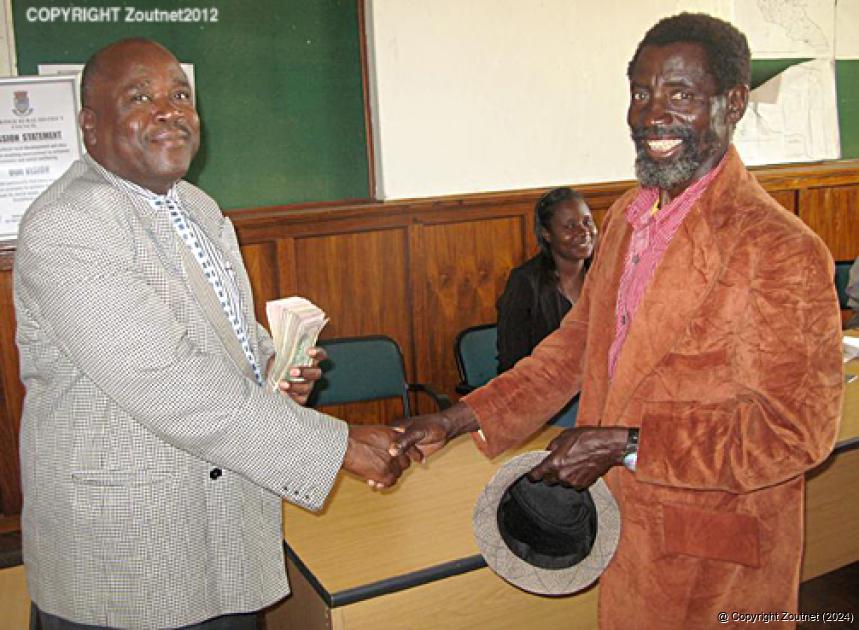

ADVERTISEMENT:

Campfire project a handy source of income for council
News - Date: 07 December 2012
The Beit Bridge Rural District Council has received US$169 900 from its hunting concessions under the local Community Areas Management Programme for Indigenous Resources (Campfire) project this year.
Speaking during a handover ceremony of the proceeds to the beneficiaries last Tuesday, the local authority’s chief executive officer, Mr Albert Mbedzi said they distributed a total of US$81 516 to the local communities. This is a sharp increase, compared to last year, when communities received $59 680 under the Campfire community-share scheme.
“This year’s hunting season was the best for the council in terms of safari hunts. We got $169 900 from this year’s hunting concessions under the Campfire project and 4 percent of that money went to the Campfire Association. The council then retained 50%of the proceeds, while the other half was distributed to the locals as part of the Campfire community share scheme,” he said.
The communities that benefitted include Tshikwalakwala, Tshipise, Masera, Shashe, Nottingham area, Pingwe Project in Sentinel, which covers areas in wards seven, eight and nine, and River Ranch in ward six. Nottingham received US$24 254 while Tshikwalakwala, Shashe, Tshabili and River Ranch received US$16 651, US$4 800, US$9600 and US$6216 respectively. Masera received US$960 and Tshipise US$480.
Last year, the local authority realised US$124 335 under the Campfire project and distributed US$59 680 to the communities.
Campfire is a community-based natural-resources-management programme developed by the government in 1989. The programme is principally designed to promote the sustainable utilisation of natural resources and preserving the rich natural heritage of the country, through the generation of income for local rural communities.
The programme operates with the support of the Zimbabwe Parks and Wildlife Management Authority, as part of its conservation function in rural areas. “Under the Campfire project, we intend to conscientise our people on the importance of wildlife conservation as well as help in protecting it from poachers. It also makes wildlife valuable to local communities because it is an economically and ecologically sound land use,” he said.
Mbedzi said the bulk of the money would go towards major rural developmental projects.
The chairperson of the Ward 6 Campfire project, Mr Michael Muleya, said the money would go a long way in rehabilitating clinics, schools and boreholes, among other community development projects.
The chairperson of the council’s committee on natural resources management, Cllr Joseph Itani Muleya, urged local rural communities to refrain from poaching, adding that there was a need to educate people continuously on the importance of wildlife conservation.
“We need to conserve our wildlife so that our communities continue to benefit from the proceeds under the Campfire project. We also intend to train community resource monitors on key wildlife-management issues as a way of safeguarding against wildlife poachers,” he said.

Recent Articles
-

Pioneer Tshivenda author honoured
08 September 2024 By Silas Nduvheni -

New Premier Hotel a testimony of what women leaders can achieve
07 September 2024 -

Seven years of promises but still no stadium at Waterval
07 September 2024 -

AG’s findings show the good, bad and downright ugly in Vhembe’s municipalities
07 September 2024 By Anton van Zyl
Search for a story:

ADVERTISEMENT


Mashudu Netsianda
Mashudu Netsianda is our correspondent in Beit Bridge, Zimbabwe. He joined us in 2006, writing both local and international stories. He had worked for several Zimbabwean publications, as well as the Times of Swaziland. Mashudu received his training at the School of Mass Communication in Harare.

ADVERTISEMENT:

